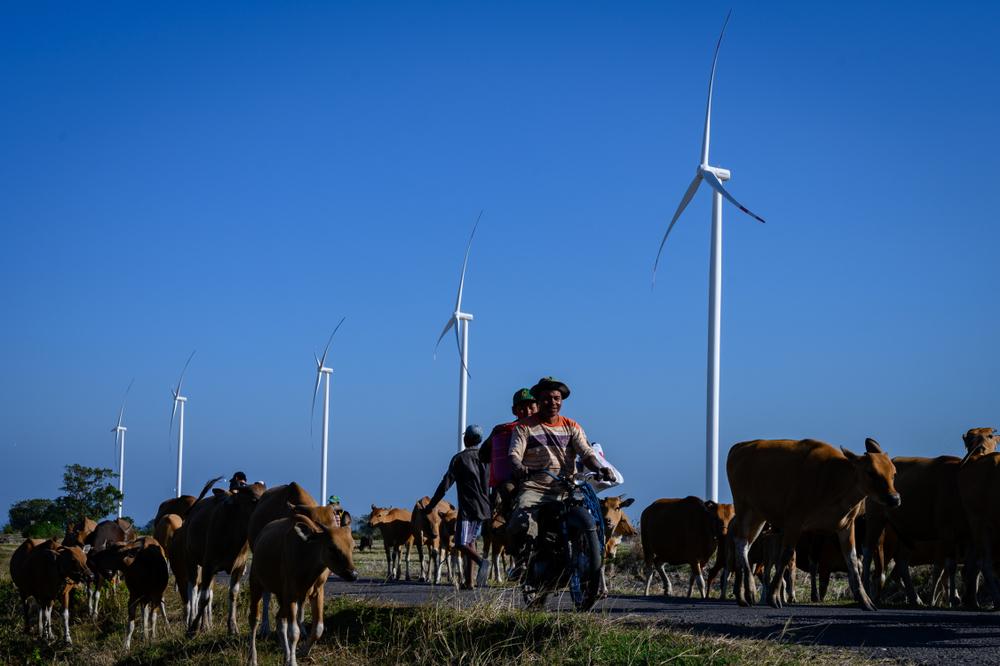Indonesia’s government considering retail green sukuk for 2020
SURABAYA – Indonesia’s government is considering selling retail green sukuk as one of its sovereign issuances next year to address rising interest from millennial investors, said Dwi Irianti, director of Islamic finance at the ministry of finance on Thursday.
Speaking to delegates at an industry event, the official said the ministry of finance is currently working with the United Nations Development Programme (UNDP) to measure investor interest.
Demand for Shariah-compliant investment products that are aligned with the Sustainable Development Goals (SDGs) are high, she said, referring to the government’s Sukuk Tabungan ST-004 series, of which half of buyers are millennials.
“Many millennials come to my office asking where they can buy retail green sukuk,” said Dwi Irianti.
“They have more concerns about environmental, social and governance (ESG) issues. We want to address their need,” she added.
The government is also looking at alternative channels of distribution to reach the digital natives.
“We might need an online platform, considering millenials make up a large proportion of users on online platforms such as Bukareksa,” she said, referring to e-commerce major Bukalapak’s platform that aggregates both Islamic and conventional investment products.
The government is currently planning several projects that can be eligible as beneficiaries of green bonds and sukuk for next year. It is in the midst of planning its budget, and weighing its options in global sukuk, global bonds, euro bonds, and samurai bonds.
The ministry of finance has so far issued $2 billion in green sukuk: $1.25 billion in 2018 and $750 million in the first quarter of 2019.
According to Dwi Irianti, the $2 billion green sukuk fund is relatively small compared to the needs of impact investment. For example, there is still a $26 billion gap for the period 2015-2019, when only $55 billion in funds were raised from a total need of $81 billion.
From the private sector, state-owned enterprise Sarana Multi Infrastructur issued $500 million in green sukuk in 2018 and in the same year the Indonesian office of Singapore’s OCBC sold a $150 million green bond. OCBC NISP’s was the first-ever green bond issued by a commercial bank in Indonesia.
“From the size perspective, it is small," said Dwi Irianti, referring to the sovereign’s $2 billion raised in two green sukuk issuances.
"But it raises the awareness level among investors. There will be 29 percent more new green investors by the end of 2019. More and more institutional investors are dedicating their funds for green instruments and philanthropists aren’t expecting too much in returns, actually.
“Their main concerns are impact reporting,” she added.
CHANNELED INTO ISLAMIC INVESTMENT BANKS
Ventje Rahardjo, executive director for the National Committee for Islamic Finance (KNKS), added that retail green sukuk is “a very good idea” to capture younger investors who are typically very rational and focused on returns comparable to conventional bonds.
He said that such green sukuk or other financial instruments aligned with SDGs should also be managed by Islamic banks or dedicated Shariah-compliant investment banks that are focused on infrastructure project financing.
This will help boost Islamic banking market share that stood at 8.73 percent (1,341.1 trillion rupiah) of total banking assets in April. The Indonesian government has set a goal of 15 percent Islamic banking market share by 2023.
“We have these financial instruments that can be tapped into investment banks,” said the executive director.
IMPROVING GREEN SUKUK OFFERING
The government will need a primary dealer to tackle the issue of liquidity premium for its green sukuk, said Dwi Irianti.
The primary dealer can also bid or trade certain series of sukuk to make it easier for investors who want to sell in the market.
Indonesia’s green sukuk are so far not competitive with conventional bonds due to the Islamic papers’ lack of liquidity in the market.
“Global investors sometimes ask for lower liquidity premiums,” said the finance ministry director.
“The problem is, unlike conventional bonds or sukuk, issuing a green sukuk product needs more effort, from preparing the green framework, making impact reporting after the issuance and so on,” she said.
Indonesia's ministry of finance published last year the green bond and sukuk framework outlining nine eligible green projects, including renewable energy and sustainable transport.
“Of course, we want the lowest price, we issued a global sukuk in 2012 with a low price of 3.3 percent. We also want green sukuk as competitive as that in the future,” she said.
REPORTING CHALLENGE
On the reporting side, Dwi Irianti told Salaam Gateway the finance ministry needs to calculate emissions reduction for each project and sometimes new standards or guidance are needed.
For example, for 2019’s green sukuk beneficiary railway project, the emission reduction reporting method used a passenger shifting method, which calculates how many cars are parked versus number of train passengers. Scores drop if the train uses coal energy.
“We need to count outcomes day by day, month by month,” she said.
“We are also coordinating with more than five related government institutions to do impact reporting and since there is no international standard yet for this reporting, we benchmark the World Bank that has issued green bonds and also partner with HSBC, UNDP as well as KPMG as our green advisors.
“We need to reformulate the matrices and framework, adjusted with local conditions,” she said.
(Reporting by Yosi Winosa; Editing by Emmy Abdul Alim emmy.alim@refinitiv.com)
© SalaamGateway.com 2019 All Rights Reserved
